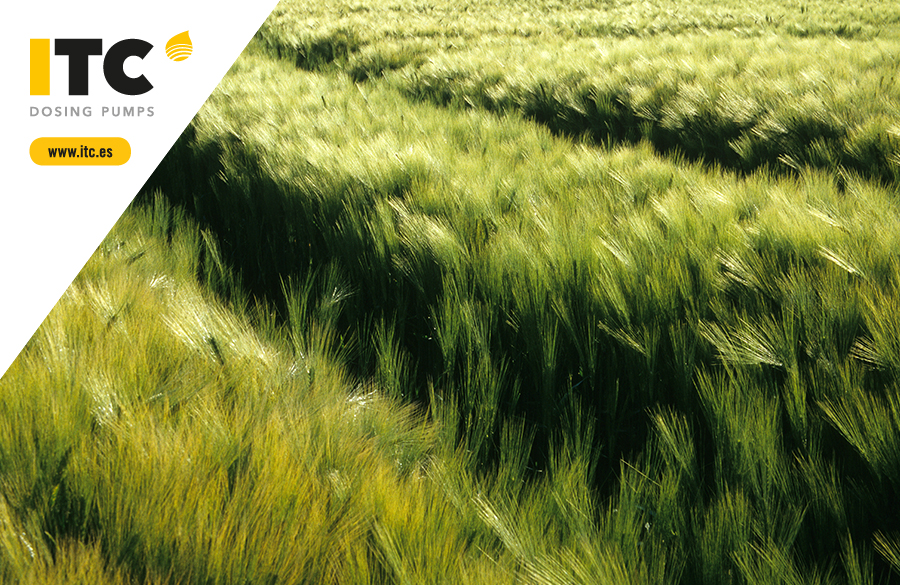Extensive crops with ITC dosing pumps
- 12/01/2023
- itcnal3
- No Comments

An extensive crop is one that is produced by extensive farming, which is primarily based around the use of natural resources by limiting the use of machinery, products and energy. The aim of this type of farming is to achieve maximum yields with few resources, while protecting the environment at all times.
Similarly, in extensive farming, the cultivated land-to-labour ratio is relatively low. Moreover, because it maximises yields while preserving the ecosystem, it is often chosen for large fields of crops that can generate the necessary resources naturally and without overworking the land.
Common extensive crops
One of the most notable differences between extensive and intensive farming is the type of crops most commonly grown in each case. In extensive farming we usually find.
- Cereals: especially oats, corn, wheat, barley and rye.
- Pulses: such as chickpeas and peas.
- Fruit trees: such as olive and almond trees.
- Vines: one of the most common in the Mediterranean area.
- Vegetables: such as onions.
For most extensive crops, extensive farming is rainfed and is limited to using natural water resources to provide them with the moisture necessary for their development.
Main characteristics of extensive crops
The main characteristics of extensive crops include:
- They are grown on large areas of land.
- Lower yields per hectare than in intensive crops.
- Low labour requirements.
- No industrial machinery is required for their cultivation.
- Smaller impact on the environment and therefore more sustainable in the long term.
- Helps to prevent eutrophication and therefore protects the environment.
Extensive farming and fertigation with ITC
With its dosing pumps, ITC is a leader in fertigation, enabling better management of irrigation and fertilisation in cultivation systems. ITC pumps achieve a reduction in the volumes of fertiliser handled, greater volumetric precision in dosing, and stability and speed in obtaining EC and pH readings.
One of the main advantages of the ITC dosing system is that we make better use of water, energy and fertilisers while also increasing crop productivity.
It also allows all types of liquid products to be injected, regardless of their concentration, density, viscosity, abrasives, corrosives, etc. Another benefit is that the dosing of the fertiliser is uniform and the flow rate remains constant under all circumstances.
Dostec 50 and EFR pumps for extensive crops
DOSTEC 50 dosing pumps are high-performance, high-precision piston or diaphragm pumps made of high-strength materials. These pumps are used for dosing liquid products and offer a wide range of injection options depending on the chosen pump head.
Meanwhile, the EFR range of electric dosing pumps with a positive return system, piston or diaphragm, are designed for continuous operation in the most demanding conditions and with all types of fluids, even with high viscosities. Available with one or two injection heads, they allow the dosing flow rate to be adjusted without having to stop the pump.
Would you like to know more about ITC’s dosing pumps? Contact us now!


